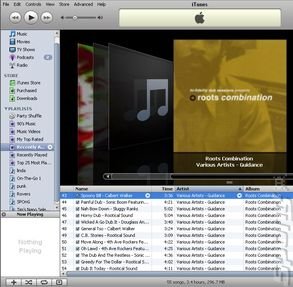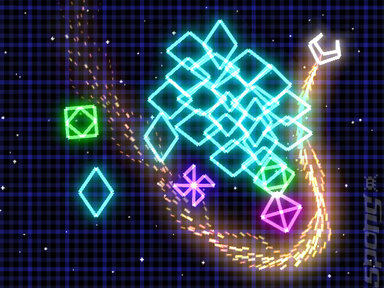Companies:
Bethesda Splash Damage
People: Paul Wedgwood
Games: Enemy Territory: Quake Wars Return to Castle Wolfenstein: Enemy Territory (PC)
People: Paul Wedgwood
Games: Enemy Territory: Quake Wars Return to Castle Wolfenstein: Enemy Territory (PC)
SPOnG: Do you think iTunes and downloadable music has helped adjust people's minds towards it?
Paul Wedgwood: Yeah. It still frustrates me because I always have a different iPod or a different iPhone that was linked to a different PC or a different laptop, so when I buy an album I just never have it again, or... I think I've authenticated the maximum number of PCs, which is five or something, and I can't find the little widget that lets me de-authenticate a PC and I don't know which of my PCs this or that album's on or whatever.
So, I actually still prefer to buy CDs. The problem is, if I want to listen to them, because the only place I have a CD player is in the house or the car, I still have to find a computer to get the thing onto my – whatever I'm using now – an iPhone 3G.
The thing is – I still don't know what web 2.0 is, and I don't use Facebook much, but we make next-generation videogames.
Next-generation videogames don't have an absolute dependence on an inherent understanding of social networking in its second or third generation. Of course, I do know a bit about Web 2.0 and social networking, but the thing is they're not really relevant elements and I think that downloadable content as a thing is interesting, but it's just another way of moving media. It's not particularly interesting in and of itself. It just means that it's easier to get into something and try it.
What's great about things like Xbox Live Arcade, PlayStation Network and WiiWare is that it does give developers an opportunity to have a smaller team, perhaps a third of the size, that can work on something shorter. Developers can actually take the risk of self-publishing without taking a huge financial risk and I love that idea.
We saw it with Bizarre and Geometry Wars, and now Frontier with Lost Winds – it's just a nice thing to see, developers doing their own thing, getting it out to market on their own and everything, that's a really refreshing thing to see.
SPOnG: Have you been tempted to do a smaller, downloadable game?
Paul Wedgwood: We think about it quite a lot. But, the problem that we find as a game development company is that if we dilute our focus then something suffers somewhere else. In the past we never had the management team that was right to work on multiple projects at the same time.
I think we're approaching the point where we may be in that position. The reason why I think we have an average review score across both of our games of 87.5% is that we've only ever focussed on one thing – it's been the sole focus of the entire company.
So, we would probably only make that transition to having a halved team or a second team if and when we felt that the senior management team was perfectly capable of keeping the team focused and that the team really enjoyed what they were doing and it wasn't going to suffer as a result of doing something else.
I think that half teams and second teams provide really nice opportunities for your staff to be able to grow, to be able to do other things, without having to leave your company. So there are really good reasons for doing it.
Paul Wedgwood: Yeah. It still frustrates me because I always have a different iPod or a different iPhone that was linked to a different PC or a different laptop, so when I buy an album I just never have it again, or... I think I've authenticated the maximum number of PCs, which is five or something, and I can't find the little widget that lets me de-authenticate a PC and I don't know which of my PCs this or that album's on or whatever.
So, I actually still prefer to buy CDs. The problem is, if I want to listen to them, because the only place I have a CD player is in the house or the car, I still have to find a computer to get the thing onto my – whatever I'm using now – an iPhone 3G.
The thing is – I still don't know what web 2.0 is, and I don't use Facebook much, but we make next-generation videogames.
Next-generation videogames don't have an absolute dependence on an inherent understanding of social networking in its second or third generation. Of course, I do know a bit about Web 2.0 and social networking, but the thing is they're not really relevant elements and I think that downloadable content as a thing is interesting, but it's just another way of moving media. It's not particularly interesting in and of itself. It just means that it's easier to get into something and try it.
What's great about things like Xbox Live Arcade, PlayStation Network and WiiWare is that it does give developers an opportunity to have a smaller team, perhaps a third of the size, that can work on something shorter. Developers can actually take the risk of self-publishing without taking a huge financial risk and I love that idea.
We saw it with Bizarre and Geometry Wars, and now Frontier with Lost Winds – it's just a nice thing to see, developers doing their own thing, getting it out to market on their own and everything, that's a really refreshing thing to see.
SPOnG: Have you been tempted to do a smaller, downloadable game?
Paul Wedgwood: We think about it quite a lot. But, the problem that we find as a game development company is that if we dilute our focus then something suffers somewhere else. In the past we never had the management team that was right to work on multiple projects at the same time.
I think we're approaching the point where we may be in that position. The reason why I think we have an average review score across both of our games of 87.5% is that we've only ever focussed on one thing – it's been the sole focus of the entire company.
So, we would probably only make that transition to having a halved team or a second team if and when we felt that the senior management team was perfectly capable of keeping the team focused and that the team really enjoyed what they were doing and it wasn't going to suffer as a result of doing something else.
I think that half teams and second teams provide really nice opportunities for your staff to be able to grow, to be able to do other things, without having to leave your company. So there are really good reasons for doing it.
Companies:
Bethesda Splash Damage
People: Paul Wedgwood
Games: Enemy Territory: Quake Wars Return to Castle Wolfenstein: Enemy Territory (PC)
People: Paul Wedgwood
Games: Enemy Territory: Quake Wars Return to Castle Wolfenstein: Enemy Territory (PC)


